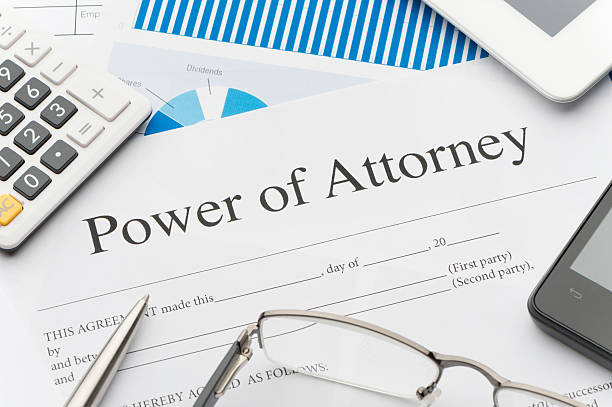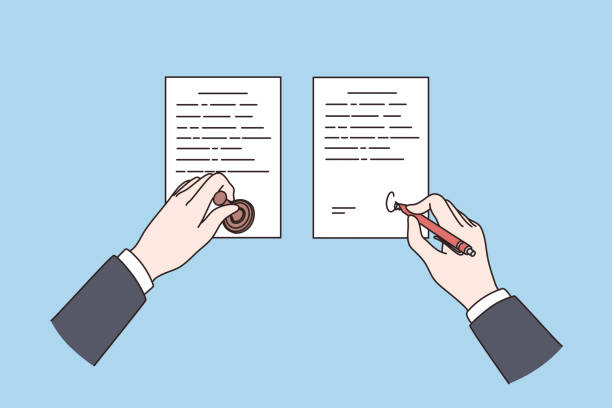A Step-by-Step Guide to Navigating the Power of Attorney Notarization

Introduction
How does the notary process for the Power of Attorney work? It is very important to understand this process as it makes sure that your power of attorney document is valid and legal. This article will explore the notarisation process, why it’s important and the steps involved.
What is a Power of Attorney?
A Power of Attorney is a paper that gives someone else the power to make choices for important matters like law, money or health. This person, called the attorney-in-fact or agent, can make decisions and do things as if they were actually you.
Why is a Power of Attorney Important?
Power of attorney is a useful legal tool that helps you prepare for unexpected situations or times when you can’t make choices of your own. It makes sure that your rights are safeguarded and gives someone you trust fully as the authority to handle important matters. But for the Power of Attorney to be legally valid, it needs to be notarised.
Understanding the Notary Process for a Power of Attorney
The notary process is a crucial step in ensuring the validity and authenticity of legal documents, including powers of attorney. When you notarize a power of attorney document, you add an extra layer of assurance that it was signed voluntarily and with the necessary legal capacity. Let’s explore the steps involved in the notary process for a power of attorney:
Step 1: Finding a Notary Public
Locate a capable notary public, approved by state to carry out notarial tasks. They act as an impartial witness and confirm identities of people participating in the signing of important documents. Notaries can be found in different locations like banks, law firms or local government offices. Many notaries can also travel to your preferred spot, making it even more convenient for you.
Step 2: Scheduling an Appointment
The next thing to do after locating a notary public, is to set up a meeting. This makes sure that the notary is ready to help you and saves you waiting for a long time. Many notaries let you schedule appointments through the internet or by calling them, which makes the whole process fast and simple.
Step 3: Document Preparation
Before meeting with the person who verifies legal documents, you need to get your power of attorney paper ready. Check to make sure that the paper shows exactly what you want, and when you’re not sure, ask a lawyer for help.
Step 4: Meeting with the Notary
When you have a meeting with a notary, make sure to bring a valid ID such as passport or drivers licence. The notary needs to check that you really are the person signing the document to make sure to stop any fake signatures and keep the notary process fair.
Step 5: Signing and Notarization

After confirming your identity, you’ll need to sign a document called the Power of Attorney. This should be done while a notary is present. The notary will then fill out a certificate proving they were present and include their signature, seal and other important details. The certificate acts as evidence that the document was properly notarised.
Step 6: Record Keeping
After the notarisation process, the notary marks down the important information about the transactions in their register. It includes the date, what kind of document it is, and names of the people involved. This is to make sure that everything is clear and acts as proof if there are any disagreements later.
FAQs about the Notary Process for a Power of Attorney
1. Q: Is notarization required for a power of attorney?
A: Notarization is not always required, but it is highly recommended. Notarizing your power of attorney adds an extra layer of credibility and makes it easier to enforce the document.
2. Q: Can any notary public notarize a power of attorney?
A: Generally, any qualified notary public can notarize a power of attorney. However, it’s always a good idea to confirm with the notary beforehand to ensure they are comfortable notarizing this specific type of document.
3. Q: How much does notarization cost?
A: The cost of notarization varies depending on the location and the notary public. Some notaries charge a flat fee per notarial act, while others have an hourly rate. It’s best to inquire about the cost before scheduling your appointment.
4. Q: Can a power of attorney be notarized remotely?
A: With the advent of technology, remote online notarization (RON) has become increasingly popular. Depending on your jurisdiction, you may be able to notarize your power of attorney document remotely through video conferencing platforms.
5. Q: Can a notarized power of attorney be used in another state?
A: In most cases, a power of attorney notarized in one state will be recognized in another state. However, it’s essential to check the specific requirements and regulations of the state where the power of attorney will be used.
6. Q: What happens if a power of attorney is not notarized?
A: If a power of attorney is not notarized, it may not be accepted or enforced by third parties, such as banks, financial institutions, or healthcare providers. Notarization adds credibility and helps ensure the document’s validity.
Conclusion
It is vital to know how the notary process works when creating a power of attorney document. Follow the steps in this guide to get your power of attorney notarised and feel confident that your wishes will be respected. Always talk to a lawyer to make sure the power of attorney meets your requirements.
